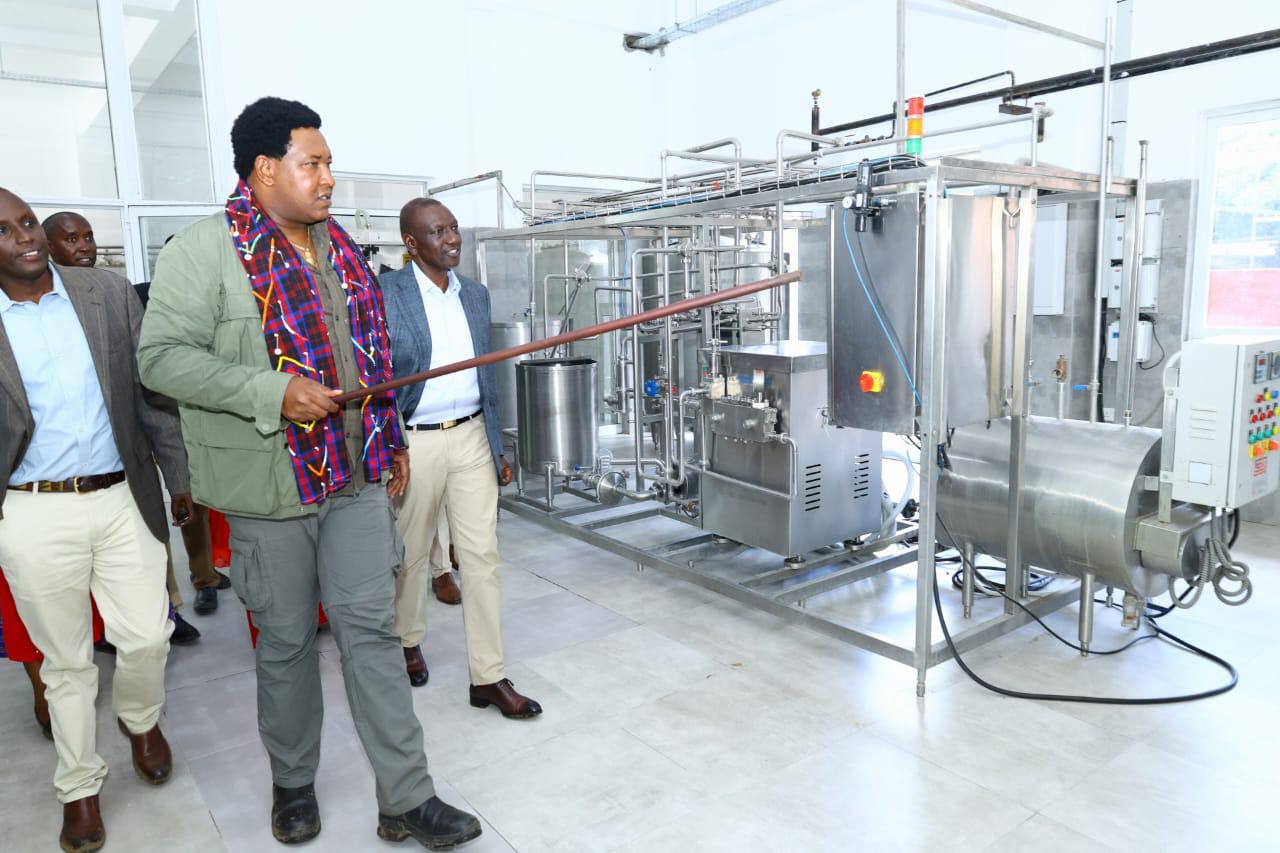

The government has begun distributing and installing bulk milk coolers to counties across the country as part of a Sh1.45 billion project aimed at boosting the dairy sector.
Agriculture and Livestock Development Cabinet Secretary Mutahi Kagwe said the initiative is geared towards enhancing value addition and market participation.
Kagwe was speaking during the flag-off of an additional eight bulk milk coolers to farmer cooperatives in Nyeri on Thursday.
Kagwe noted that the supply of 230 coolers across 40 counties will increase the national milk chilling capacity by 475,000 litres daily, directly and indirectly supporting over 2 million people.
The initiative was first launched last month by President William Ruto in Meru county with the distribution of the first batch of 15 coolers to farmer-owned cooperatives.
The project, under the Livestock Value Chain Support Project, is designed to transform smallholder farmers' systems from subsistence to commercial farming.
It focuses on increased value addition, improved storage, and cooperative milk handling capacity, helping address infrastructure challenges within the dairy industry.
According to the ministry, Kenya produced an estimated 5.3 billion litres of milk in 2024, with 80 per cent coming from smallholder farmers.
However, the country still loses approximately six per cent of marketed milk annually to post-harvest losses—about 175 million litres valued at Sh7.9 billion.
“This initiative aligns with the broader government agenda under the Bottom-up Economic Transformation, where the Ministry projects to export 1 billion litres of milk annually, generate 500,000 jobs, double milk production to 10 billion litres annually by 2027, and utilise 70 per cent of current processing capacity,” Kagwe said.
The CS emphasised the need to address key sector challenges, including productivity, inadequate breeding stocks, poor infrastructure, post-harvest losses, and climate change.
He said efforts are underway to scale up dairy productivity through sustainable interventions such as leasing arable public land for pasture and fodder production, quality sexed semen production, and a mass livestock vaccination drive.
“We must adopt practical and viable interventions to transform the dairy sector. We must synergise our efforts to increase production and productivity through commercialisation of vaccination drive," Kagwe said.
This, he said, will ensure that local meat and dairy products meet international standards, pasture and fodder production, enhance production of quality sexed semen, and a mass livestock and qualify to sell on their shelves.
The dairy industry contributes four per cent to Kenya’s GDP and remains a key pillar of the agricultural economy.


















